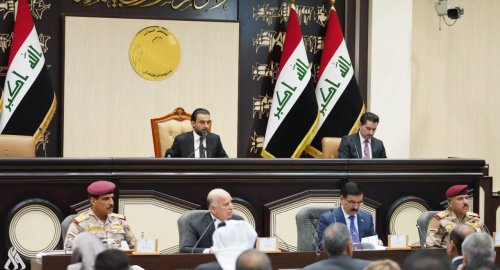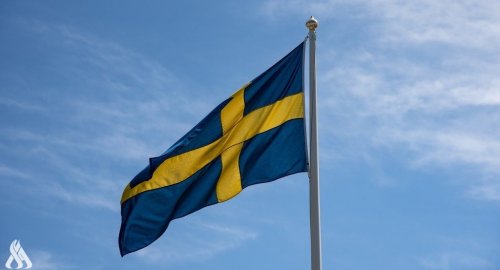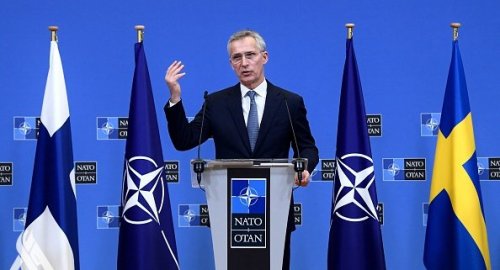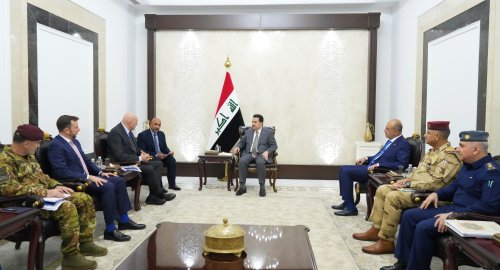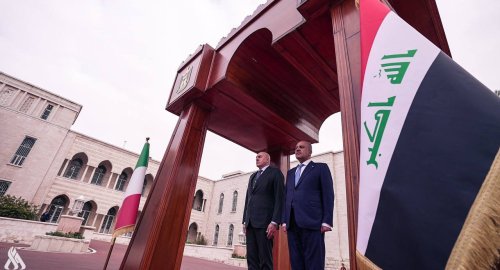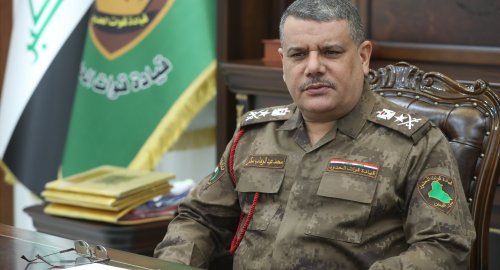
After undermining PKK and removing Iranian opposition checkpoints, Interior Ministry aims to secure borders

- 24-06-2024, 13:11
INA- Baghdad
Border Forces Command of the Ministry of Interior announced on Monday that eight measures had been taken to secure the Iraqi-Iranian border, and it indicated the removal of the Iranian opposition from the border strip, it also revealed a two-axis plan to secure the Iraqi-Turkish border.
Lieutenant General Muhammad Abdul Wahab Sukkar, the commander of the border guard forces, stated in an interview with the Iraqi News Agency (INA): "Iraq has borders with six neighboring countries. The immunization procedures vary depending on a number of factors, including first the degree to which the border area is under the control of security from both the Iraqi side and the side of the country opposite Iraq, second the proximity of the residents of the border villages with each other, and third the measures taken to control the borders, such as engineering fortifications or electronic technical procedures, fourth the economic differences between the two countries, and fifth, the geographic area."
He added: "With regard to the border with the Islamic Republic of Iran, all borders with neighboring countries are drawn according to treaties," noting that "Iraq's borders with 6 countries are more than 3714 kilometers, but the longest with Iran, where it is 1493 kilometers of them with the river border, which is the borders of the Shatt al-Arab with a border of 93 kilometers and the rest land borders."
He added that "1,500 kilometers of the Iraqi-Iranian border in the provinces of the Region (Erbil and Sulaymaniyah), with overlap in the borders and difficult terrain," noting that "during the past and current years, great work has been accomplished on the Iraqi-Iranian border within the province of Sulaymaniyah, where we began to strengthen the resources of our security units and formed a brigade to enhance the security of this border, which is the 21st Brigade based in Halabja, and we strengthened them with human resources from forces personnel , new volunteers and vehicles , and we completed 70-80 percent of the establishment of 91 stations.”
"The first 300 kilometers of Khanaqin up to northern Penjwen were covered with thermal cameras,” adding that "Our procedures include arresting on a daily basis Asian, Pakistani and Afghan workers trying to enter the country illegally for the purpose of working," he said.
He pointed out that "we had a difference of opinion on the issue of customs tariffs with the Kurdistan Regional Government, and a final agreement was reached on the need to grant those receipts legally through the ports exclusively," considering that "this is a great achievement for Iraq by subjecting the said region under the authority of the law even in customs tariffs."
He pointed out that "this area is where the elements of the Kurdistan Workers' Party (PKK) banned since the eighties of the last century, where we worked to undermine the area controlled by these armed elements," stressing that "there are great understandings with the government of Sulaymaniyah and with the Iranian side to control the areas."
"During this year, we went towards a very important project, which is to remove the nearby Iranian opposition checkpoints on the Iraqi-Iranian border at the request of the Iranian side, as it represents a threat to the security of the Islamic Republic," he said, explaining that "the units of the Second Brigade controlled many checkpoints that Iraqi forces have not reached since 1991, within Erbil province, where many problems and tension between the Iraqi and Iranian sides have been reduced."
"The Iranian opposition has no presence close to the border strip between Iraq and Iran," he said, noting that "a higher security committee headed by Qassem al-Araji and our membership has disarmed the opposition and reached important results with the aim of keeping their checkpoints and armed action away from borders," adding that “They were removed from the border, where they were supposed to be grouped into camps and the United Nations was responsible for finding jobs for them or sending them away."
Regarding the border with Turkey, Sukkar stressed that "Iraq has a border with Turkey with a length of 362 kilometers, 300 kilometers of which are land within the provinces of Erbil and Dohuk, and 62 kilometers are within the province of Dohuk, one of the tributaries of the Tigris River."
He pointed out that "Iraq has not throughout its history stations on the Iraqi-Turkish border strip to control them, which generated activity for outlaw gunmen," pointing out that "our work in the recent period has become two-way, the first is coordination with the Turkish side to establish a joint coordination center so as not to become an intersection between our units and Turkish units, and we can build stations on the Iraqi-Turkish strip, where we have reached positive results initially on the subject of coordination, but as something on the ground has not been achieved so far, but there are Seriousness."
He pointed out that" our work in the second direction included controling what can be controled in the empty border areas, where we started building more than 27 border stations on the Iraqi-Turkish border strip, some in the north of Zakho in Dohuk governorate and others within Erbil governorate, and we reached good results, "expressing his hope that"there is a great understanding between the two countries because this issue is important and big".
He pointed out that "there is a Turkish incursion into Iraqi territory at different depths with checkpoints for the Turkish army, "stressing that" the command of the border forces is the only federal authority located on the Iraqi borders within the provinces of the region and is concerned with the Iraqi border with Turkey.”
He continued:" We are trying to build our fortifications and control the border to prevent any threat towards Turkey, but this issue needs effort and financial allocations, “pointing out that “this border area is reinforced for the first time with thermal cameras".
"There are two brigades from the first region command, controlling the Iraqi-Turkish border, and they were reinforced with infantry regiments, human resources and engineering equipment to open roads, and work is continuing on this," he said.
Weekly decline in the Gold prices
- Economy
- 06:32
US Central Command: We killed ISIS terrorist leader Abu Yusuf in Syria
- International
- 24/12/20
Liverpool compete with Real Madrid to sign Olympique Lyonnais star
- Security
- 24/12/19
ISC, ADX discuss Strengthening Economic Ties
- Economy
- 24/12/16
Iraq assumes presidency of Arab Investment Company’s Executive Board
- Economy
- 24/12/17
